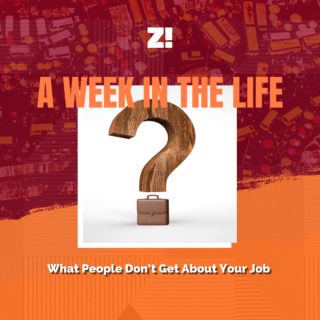
For millennials and GenZers, real estate agents are the people we love to hate. I talked to Oluwaseun Lisk-Carew, a certified real estate agent based in Lagos and Ibadan, Nigeria, about why there are so many costs involved in renting a house and why the hell inspection fees exist.
Why did you become a real estate agent?
I’ve always loved buildings. In 2020, friends and family encouraged me to give real estate a shot. At the time, it seemed like a lucrative business. I heard agents brag about their commissions even if they didn’t mention figures, so I didn’t hesitate to try my hands at it.
I understudied a few experienced agents for a while and found that I loved touring properties and helping people decide where to live. They showed me how to register my business and get certified as a real estate agent. There is this joy I feel after I close a deal; I can’t explain it. I also picked up interior decor — I’d helped my brother decorate his house even before I broke into the industry.
What does a typical day as an agent look like?
Incredibly unpredictable. Every day is different. Some days, you may be fully booked, but all your clients cancel last-minute, and then you end up not going anywhere. Some days, you decide you don’t want to leave the office but spend the whole day inspecting houses all over the city. Other days, you find yourself arguing with client after client and fighting fires under the hot sun. Except on my off days, I have to be prepared for anything.
What’s the most frustrating part of your job?
Most Nigerians dislike real estate agents, and it breaks my heart. But I get why.
First, there are too many fraudulent agents, so most clients are naturally suspicious; they think all agents are the same. On the other hand, some Nigerians don’t like to hear the truth. They want heaven on earth for small money. So when they meet a genuine agent who is straightforward, they baulk at the price. They’d rather go to roadside agents that will waste their time. No, Kayode, you won’t get a two-bedroom apartment in Bodija for ₦250k.
I would also like to clarify a common misconception: most people believe that the agents fix the price. We don’t.
I’m listening.
Think of it like this: I’m trying to close deals as fast as possible in a crazily competitive market. Why would I raise the prices above what people can afford? The thing is, landlords talk in their circles and set their prices. We agents actually try to persuade them to keep prices reasonable. Sometimes, they agree, then later, their friends and colleagues encourage them to increase the rent. It’s not my house. I’m just an agent, so I cannot just put any price on a house. Agents simply do not have that kind of control.
RELATED: 9 Things You Should Be Warned About Before Renting a House in Ibadan
What about the total package issue?
The landlords also determine these extra prices. The agent only takes agency fees (usually around 10-20%). Other fees like caution, agreement, legal fees and service charges are out of our control. The landlords fix these fees. If a lawyer is involved, there will be legal fees. The caution fees are typically refundable, subject to terms and conditions. The caution fee is insurance of sorts for fixing things in the apartment. If you are moving out of a house and everything is intact, you are entitled to a refund of the caution fee. Most people don’t read agreement forms, hence the misunderstanding.
Interesting. There’s another one: inspection fees. What’s the deal with that?
To be honest, I don’t even like collecting inspection fees. But you need to understand that agents are human beings too, and this work that we do is a thankless one. When I first started, I did not demand inspection fees. Clients took advantage of me; they would waste my time checking so many houses even when they were not ready to do business. I was spending around ₦10k a week for time wasters. When I started collecting inspection fees, the number of time wasters reduced.
Helping people rent houses is a very dicey job. Agents demand inspection fees as a form of commitment to cover logistics and because time is money.
So it’s a cause and effect thing…
To be fair, renting a house is not for the faint-hearted, but I wish renters would realise that agents are Nigerians too. The market is affected by the economy. Prices of everything in Nigeria are soaring every day, and it shocks me that people are shocked housing is following suit.
I usually have a list of questions to narrow down prospective apartments for clients. It turns out some renters don’t even know what they want. In large cities like Lagos or Ibadan, people want to check out numerous houses in different parts of the state. And they want me to take them to all those places, expending my time, energy and money. Renters need to be able to manage their expectations. Some people want plush apartments with constant power and water supply in beautiful estates at the centre of town for ₦300k Buhari naira. In 2021, come on!
RELATED: Interview With Lagos Apartments
Tell me about one time that a renter frustrated you.
I usually put out notices of available apartments, including photos and pricing details, and people reach out to me. There was this renter who wanted to check out several of them. They wanted to check out apartments in Oluyole, Jericho and Bodija. I told them to pick the location they preferred and to pay an inspection fee to visit all those places. In Ibadan, inspection fees typically never exceed ₦2,000 for these kinds of requests. The renter hesitated and went, “I don’t think I want the Bodija house,” and “The one at Oluyole is too expensive. Maybe we should check Jericho.”
Okay, since you know you don’t want Bodija, why did you want to check it in the first place?
Inspection fees help with clients like this. People will think twice before spending money because nobody wants to pay multiple inspection fees for different houses.
COMPONENT NOT FOUND: newsletter-blockWhat’s the craziest experience you’ve had with a renter?
Oh, I have lots of this, but one really stands out, and a renter who had found an apartment that he liked. The house cost ₦900k. We got back to the office and were about to sign a contract when the renter said he needed to step out. It turns out that once the renter left the office, someone approached him and promised to get him the house for ₦50k cheaper. They must have taken him to a fake office because they ended up duping him, and he never saw them again.
In this economy?
Yes, people do this a lot.
Hm. How does one detect fraudulent agents?
If someone offers you a deal and it looks too good to be true, chances are, it is. They typically promise mind-blowing stuff for cheap, but decent housing is not cheap.
Registered agents have proper documentation processes and are more than willing to answer questions. Genuine realtors are licensed — fraudulent agents are unlikely to have the required licenses to operate. Most of them are not actual agents — they are middlemen determined to get money by hook or by crook.
Also, any agent who demands payment into their account is likely shady. Never pay to a middle man. People need to draw up a checklist of must-haves when house-hunting; making sure to see the house themselves and communicate with the landlord before payment should rank high on this list. The red flags are always there, and sadly, the system isn’t well regulated. There are laws governing these things, but they aren’t being enforced. So many roadside agents are not accredited. Hopefully, one day, the government will set up infrastructure that will help curb the widespread fraud that has permeated the system.
EDITOR’S PICK: What It’s Like to Rent in Nigeria As a Nigerian Woman




